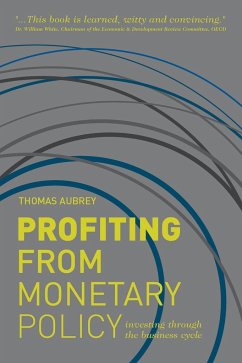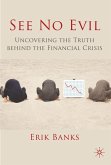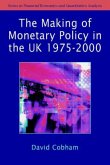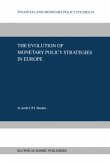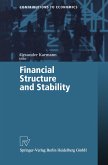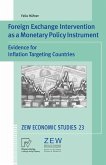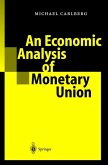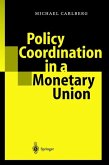The Financial Crisis has brought the pensions time bomb centre stage due to a decade of low returns increasing unfunded pension liabilities and lowering future retirement incomes. This is because most investors have been unable to avoid the substantial volatility in asset prices and capital destruction that has accompanied the business cycle. Until investors reject the prevailing monetary policy consensus as an investment framework based on price stability and general equilibrium, pension schemes will continue to suffer poor returns due to periodic downturns. Alternative credit-based disequilibrium frameworks exist, originating with the work of Knut Wicksell that was subsequently developed by the joint winners of the 1974 Nobel Prize, Friedrich Hayek and Gunnar Myrdal. Credit-based frameworks can measure the extent of disequilibrium in an economy signaling to investors when to switch from equities to bonds and vice versa, thus preserving capital as the business cycle shifts. Empirical analysis on multiple countries demonstrates that investment strategies that track the business cycle generate equity like returns with bond-like volatility. The provision of business cycle tracking funds will therefore at least go some way to defusing the shortfall in pension provision.
Profiting from Monetary Policy is a highly innovative book that provides new insights on the business cycle and exposes the flaws in current monetary policy. It advocates a new, credit-based framework which can provide investors with the returns they need whilst eliminating the volatility that has plagued the industry in recent years, and will prove to be an invaluable guide for investors in today's post-crisis landscape.
Profiting from Monetary Policy is a highly innovative book that provides new insights on the business cycle and exposes the flaws in current monetary policy. It advocates a new, credit-based framework which can provide investors with the returns they need whilst eliminating the volatility that has plagued the industry in recent years, and will prove to be an invaluable guide for investors in today's post-crisis landscape.
"A fascinating new book" - John M. Mason, Seeking Alpha
"Thomas Aubrey, a credit analyst, argues that investors have been led astray by the belief that economic growth drives asset-market returns . . . instead, investors should focus on the credit cycle." - The Economist
"Can modern-day Austrians use advanced financial techniques to more accurately predict a crash? U.K. financial consultant Thomas Aubrey has devised a method in his great new book . . . Aubrey focuses on the credit cycle as a way of determining whether to be bullish or bearish . . . It appears to be the first book-length effort to apply Austrian/Swedish finance theory." - Mark Skousen, Markskousen.com
"This book is learned, witty and convincing. Mr Aubrey draws adroitly from historical data and the history of economic thought to discredit much of 'modern' macroeconomic thinking. Rather, he supports a 'Neo-Wicksellian' view that puts credit and leverage at the heart of serious economic downturns. His practical guidance to asset managers, hoping to profit from identifying emerging disequilibria, is an added bonus." - Dr. William White, Chairman of the Economic and Development Review Committee, OECD and former Economic Advisor for the Bank for International Settlements
"Thomas Aubrey has done an impossible thing. He has used good but somewhat forgotten theory to the practical purpose of telling people who may wish to invest how to avoid the pitfalls of boom and bust. Hisbook is readable and useful and he argues his case convincingly. Read him and you may learn more than just good economics." - Professor Meghnad Desai, London School of Economics and Political Science
"The ideas of Knut Wicksell - Sweden's most famous economist - have come to play a central part in modern economists' understanding of the business cycle. In Profiting from Monetary Policy Thomas Aubrey performs the much-needed service of bringing those same ideas to the attention of investors, so as to better enable them to anticipate, withstand, and even profit from, financial booms and busts." - George Selgin, Professor of Economics, University of Georgia and Senior Fellow, The Cato Institute.
"A useful post-crisis read which uses economic theory to explain boom and bust." - Stephanie Hawthorne, Pensions World
"Thomas Aubrey, a credit analyst, argues that investors have been led astray by the belief that economic growth drives asset-market returns . . . instead, investors should focus on the credit cycle." - The Economist
"Can modern-day Austrians use advanced financial techniques to more accurately predict a crash? U.K. financial consultant Thomas Aubrey has devised a method in his great new book . . . Aubrey focuses on the credit cycle as a way of determining whether to be bullish or bearish . . . It appears to be the first book-length effort to apply Austrian/Swedish finance theory." - Mark Skousen, Markskousen.com
"This book is learned, witty and convincing. Mr Aubrey draws adroitly from historical data and the history of economic thought to discredit much of 'modern' macroeconomic thinking. Rather, he supports a 'Neo-Wicksellian' view that puts credit and leverage at the heart of serious economic downturns. His practical guidance to asset managers, hoping to profit from identifying emerging disequilibria, is an added bonus." - Dr. William White, Chairman of the Economic and Development Review Committee, OECD and former Economic Advisor for the Bank for International Settlements
"Thomas Aubrey has done an impossible thing. He has used good but somewhat forgotten theory to the practical purpose of telling people who may wish to invest how to avoid the pitfalls of boom and bust. Hisbook is readable and useful and he argues his case convincingly. Read him and you may learn more than just good economics." - Professor Meghnad Desai, London School of Economics and Political Science
"The ideas of Knut Wicksell - Sweden's most famous economist - have come to play a central part in modern economists' understanding of the business cycle. In Profiting from Monetary Policy Thomas Aubrey performs the much-needed service of bringing those same ideas to the attention of investors, so as to better enable them to anticipate, withstand, and even profit from, financial booms and busts." - George Selgin, Professor of Economics, University of Georgia and Senior Fellow, The Cato Institute.
"A useful post-crisis read which uses economic theory to explain boom and bust." - Stephanie Hawthorne, Pensions World
